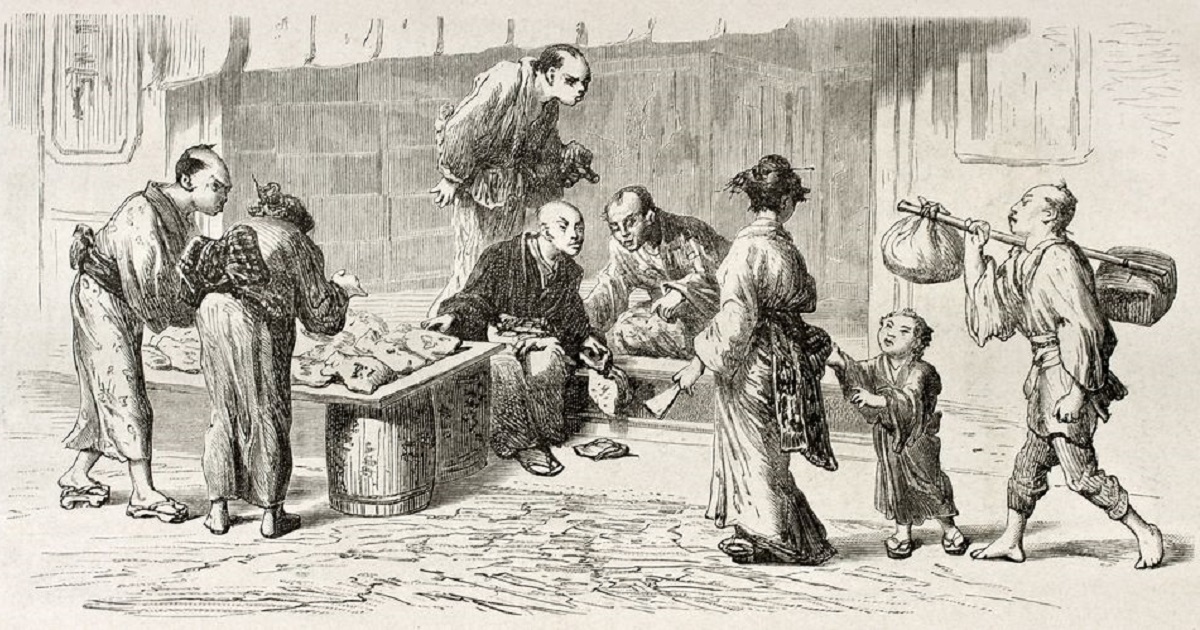
by Noriyuki Morimoto
The following story was written by Ihara Saikaku, a prominent writer of the Edo period:
One autumn night in the Kamakura period, Aoto Fujitsuna, a powerful samurai, was crossing the Namerigawa River in Kamakura when he accidentally dropped a few small coins in the water. Fujitsuna summoned a group of people and offered them a large sum of money to search for the dropped coins, and one of them successfully found them. Fujitsuna was so pleased that he gave the man yet another reward and left, saying, “If these coins were left unclaimed, it would mean a loss to the wealth of the nation, but the sum of money I give to the people will circulate and be useful to society.” People laughed at Fujitsuna’s act, saying, “He has clung to pennies only to lose a lot of money.”
Delighted at the unexpected fortune, the people began to feast. At the table, the man who found the coins boasted, “Since it would be hard to find the coins that Fujitsuna had dropped, I figured that I can just offer him the coins I had. Fujitsuna is known to be smart, but I managed to trick him.” One of the people who heard his words was outraged at the injustice and left his seat.
The truth of the matter eventually reached Fujitsuna, who found and captured the man who had deceived him. Fujitsuna put the man under close surveillance, this time stripping him naked and forcing him to search for the coins. The season changed from fall to winter, and on the 97th day, the man finally found all the coins. The person who had left his seat in protest of the injustice was also sought out. Upon close investigation, it was discovered that he had come from a samurai family, but circumstances had led him to live among commoners. This man was given back his samurai status.
The topics of this story can be summarized in the following three points:
First is the common lesson that needless talk is the source of misfortune, condemning the actions of the man who boasted of his cleverness and ended up revealing his own misdeed.
Second is the status-order worldview, where the samurai is deemed to have different aspirations when it comes to opposing injustice and speaking out in righteousness, even in less fortunate circumstances.
Third is a shrewd economic theory delivered from what at first glance appears to be the folly of penny-pinching to lose a fortune: large sums of money are useful to society only when they are consumed and distributed.
It is thought that Saikaku’s intention was to focus on the first and second points, reflecting the values of the Edo period in which he lived, but the third point, the economic theory, is the most interesting one in modern times. Fujitsuna might have anticipated Keynes by several centuries.
[Category /Work-Style Reform]

Chief Executive Officer, HC Asset Management Co.,Ltd. Noriyuki Morimoto founded HC Asset Management in November 2002. As a pioneer investment consultant in Japan, he established the investment consulting business of Watson Wyatt K.K. (now Willis Towers Watson) in 1990.

